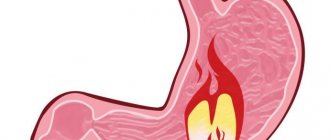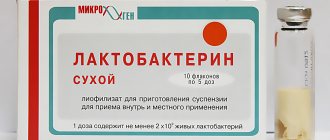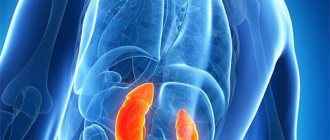Unfortunately, no one has been spared the unexpected need to go to the toilet. As you know, diarrhea comes unexpectedly and there is no cure. And the rhythm of life does not imply the possibility of being out of action for a long time. Therefore, many resort to taking potent drugs, including antibiotics. Of course, it is necessary to help the body.
The habit of relying primarily on taking potent substances is present among many. There are various causes of diarrhea in adults. The child may experience other symptoms.
How is diarrhea treated?
Diarrhea should be considered as a symptom, that is, part of the clinical picture of a disease. Therefore, the therapy algorithm is planned in accordance with the requirements for the treatment of primary pathology accompanied by intestinal dysfunction. The appointment scheme may include activities such as:
- Diet (sometimes fasting is required).
- Rehydration (replenishment of fluid deficiency - both by consumption by mouth (orally) and by administration into a vein (infusion therapy)).
- Taking probiotics (live bacteria that correct the state of intestinal flora) and enzyme preparations (improving digestive function in case of pancreatic insufficiency).
- Prescription of enterosorbents (substances capable of binding and removing toxins from the body).
- Use of intestinal secretion and motility inhibitors (used to stop diarrhea).
- Use of antimicrobial drugs.
Drawing up a treatment regimen requires knowledge of many nuances. For example, in no case should you take intestinal motility inhibitors (Loperamide, Imodium) for pseudomembranous colitis or acute dysentery. And along with the liquid, in case of severe diarrhea, the patient must also be given electrolytes - salts, the deficiency of which can lead to life-threatening disorders. They are included in rehydration solutions (Gastrolit, Ionica, Izosol). Bowel dysfunction can be due to various reasons, so a correct assessment of the situation is necessary to select the appropriate treatment.
Signs of infection
Bacterial infection is the most common cause of diarrhea. It can enter the body along with dirty water, dirty products, and also as a result of neglecting the rules of personal hygiene.
Antibiotics against diarrhea are prescribed if a person exhibits symptoms such as:
- copious discharge;
- loose stools with impurities or green mucus;
- a large amount of mucus;
- discharge with blood.
Often, bacterial diarrhea is accompanied by high fever, vomiting and tenesmus (painful urge to defecate).
Important! If blood is noticed in the feces, you should urgently contact a specialist. This symptom is very dangerous and may be a consequence of Crohn's disease, tumor or hemorrhoids.
When are antibiotics needed for diarrhea?
The indication for the use of drugs in this group is the bacterial infectious genesis of the disease:
- cholera;
- shigellosis (dysentery);
- typhoid fever;
- salmonellosis;
- Escherichiosis;
- campylobacteriosis;
- yersiniosis.
Antibiotics are targeted drugs that affect the causative agent of the infection, and not the symptom. They are effective only if there is a “point of application” - that is, a bacterium that can be affected by the active substance (for example, leading to disruption of the synthesis of the microbial cell wall).
If the diarrhea is viral in nature or caused by non-infectious causes, these medications are useless; They do not have an antidiarrheal effect, but the risk of adverse side effects if used unreasonably is very high.
Diet
You need to organize your meals in a special way from the day you feel the symptoms of diarrhea. It is necessary to exclude everything fatty, fried, smoked and sweet. Be sure to drink a lot of water.
In the first days, it is better to refuse food, and as intestinal function is restored, gradually include crackers and dietary meat, cottage cheese and light yogurt, baked apples and buckwheat porridge in the diet.
If you follow the correct diet throughout the entire treatment and during the recovery period, that is, 10-15 days after stopping the drug, then such a problem as diarrhea from antibiotics will not arise.
What to do (an adult usually does not have time to spend days at home several times a month and treat diarrhea) if you are faced with such a complication? Go through all stages of the therapeutic diet again.
Classification of drugs
Today, the patient is offered a wide range of medications used for diarrhea of infectious origin, but not all of them are antibiotics. So, pharmacological agents with an antimicrobial effect are divided as follows:
- Antibiotics (penicillins, cephalosporins, macrolides, fluoroquinolones, tetracyclines).
- Sulfonamides.
- Intestinal antiseptics (nitrofurans).
All of them can act on microorganisms that cause disease and diarrhea as a symptom. That is, in fact, they can be classified as antibacterial drugs. However, in the official classification, only certain groups named in the list above are considered to be such - for intestinal infections they are most often used:
- tetracyclines;
- fluoroquinolones;
- macrolides.
Sulfonamides and nitrofurans are obtained synthetically, while antibiotics themselves are of natural origin. However, in modern pharmacology this difference is gradually disappearing, as manufacturers use new technologies that involve the use of chemical synthesis to produce all groups of antimicrobial agents.
It is also worth mentioning a separate group of drugs used for diarrhea. These are probiotics (live bacteria designed to regulate the balance of intestinal microflora) and nutrients for them or substances that accelerate the growth of beneficial microorganisms. These include ingredients such as lactulose, inulin, pectin; The class of drugs is called prebiotics. An example of a medicine that combines the properties of each of the drug options is Bifiform. The drug does not destroy microbes, but is used in the prevention and treatment of conditions accompanied by dysbiosis syndrome - a violation of the species and/or quantitative composition of the intestinal flora.
Symptoms
The fact that diarrhea is a consequence of an infectious infection is evidenced, first of all, by a change in the color of the stool. You should be concerned if your bowel movements become:
In addition, bacterial diarrhea is accompanied by other nonspecific symptoms:
- fever;
- chills;
- severe weakness;
- nausea and quite often vomiting;
- incessant intense abdominal pain;
- frequent urges.
Often, diarrhea abruptly gives way to constipation.
People suffering from an intestinal infection have:
- whitish coating on the tongue;
- pale skin;
- bitter taste;
- bad breath;
- profuse sweating.
List of antimicrobial drugs for diarrhea
Medicines with antibacterial effects used for diarrhea are divided into different groups - they are already listed in the previous section. Now let's look at which drugs are considered the most effective. They should be described in accordance with the order of application algorithm.
First line therapy
Otherwise called starting, since it begins even before the variant of the pathogen is determined - that is, on the basis of objective clinical symptoms. Basic drugs are intestinal antiseptics:
- Furazolidone.
- Furagin.
- Nifuroxazide.
- Enterofuril.
- Stopdiar.
- Lekor.
Sulfonamides acting in the intestinal lumen (Phthalazol, Trimethoprim) are also in demand, but they should be treated with caution due to the high risk of allergies and toxic effects. This group of drugs is contraindicated in pregnant women due to their teratogenic effect on the fetus; It should not be used while breastfeeding. Sometimes a broad-spectrum antibiotic is prescribed - Chloramphenicol. It is effective against yersiniosis, typhoid fever and salmonellosis.
When choosing an intestinal antiseptic, you need to take into account the characteristics of the drugs. It is best to purchase the drug that is most effective even against mutating strains of bacteria, rather than focusing on those drugs to which many pathogens have developed resistance (resistance). For example, Nifuroxazide is good because in therapeutic dosages, with a powerful antimicrobial effect, it does not disturb the balance of the microflora of the large intestine. This means that the patient is not at risk of developing dysbacteriosis. In addition, the medicine acts topically (locally) without having a systemic (general) effect. This significantly reduces the risk of side effects.
Second line therapy
This is an alternative treatment option; indicated if the patient is in serious condition and/or the starting nitrofuran drugs were ineffective. It is used in a hospital setting, that is, subject to hospitalization in a medical facility. How an antibiotic for diarrhea can be chosen:
- Amoxiclav;
- Augmentin;
- Tsifran;
- Amikacin;
- Ciprofloxacin;
- Tarivid.
They are prescribed in isolation (one drug) or in combinations (different synergistic drugs, that is, in combination they provide a more effective effect). The duration of therapy depends on the type of pathology and the drugs chosen, and can range on average from 5 to 14 days.
Antibiotics should not be used for longer than two weeks unless agreed with the attending physician.
This group of drugs, in general, should not be used as independent therapy. But every patient should know: the longer the medication is taken, the higher the risk of developing dysbiosis, damage to the intestinal mucosa and other side effects. In uncomplicated cases of infection accompanied by diarrhea, a course lasting 5-7 days is sufficient.
Third line therapy
It is a backup algorithm, which is resorted to only in cases where the drug options from the starting and alternative line have been exhausted. This can happen if the patient is infected with resistant flora, that is, resistant to antimicrobial drugs, or is allergic to any medications in standard primary regimens. Reserve group funds are highly expensive; they should be used carefully and judiciously, since if resistance develops there is nothing to replace them with. These include:
- Rifampicin.
- Ceftibuten.
- Norfloxacin.
- Meropenem.
- Ceftazidime.
- Azithromycin.
Reserve drugs are prescribed, monitoring the condition using regular objective examinations and laboratory methods (in particular, culture of intestinal secretions on nutrient media).
Contraindications to antibacterial therapy
Antibiotic therapy is an effective method in the fight against pathogens. Treatment with such drugs is limited in some cases:
- Sensitivity to individual components of the drug.
- For some drugs - early childhood.
- Kidney or liver failure.
- Pathologies of the cardiovascular system.
- The problem of hematopoiesis.
- Epilepsy.
- Porphyria.
- Psoriasis.
- Fungal diseases of the skin.
- Reduced white blood cell count (leukopenia).
Parents of the baby should understand that long-term use of antibiotics leads to a decrease in immune defense, digestive disorders, and the development of dysbiosis. In many cases, these drugs provoke problems with stool.
The child may carry diarrhea for a long period after the infectious agent has been eliminated. If it is necessary to use medications of this group, a competent doctor will prescribe auxiliary agents - probiotics and prebiotics.
Self-treatment of children with antibiotic substances is strictly prohibited. The selection of medications can be carried out solely on the basis of diagnostic data under the strict guidance of a pediatrician.
Antibiotics for diarrhea in children can only be used with a prescription or doctor's recommendation. When purchasing a medicine yourself, you should carefully read the instructions before using it.
The article has been approved
by the editors
For confirmed bacterial infections, systemic antibiotic therapy is advisable. The regimen of drug use depends on the etiology and characteristics of the course of the disease.
Antibiotics for diarrhea in children and adults are used to destroy pathogenic microorganisms. This allows you to relieve the main symptoms and contributes to the further restoration of normal intestinal flora.
Types of antibiotics. For the bacterial etiology of diarrhea syndrome, various antibiotics, sulfonamide drugs, antimicrobial agents of the quinolone and fluoroquinolone group, nitrofuran derivatives and antiseptics are prescribed.
They can have a bacteriostatic or bactericidal effect. In the case of a severe, prolonged and complicated course of the process, it is necessary to determine the sensitivity of pathogens to medications. It is desirable that the chosen drug does not upset the balance of microflora in the intestine.
Application possibilities. In some cases, the prescription of antibiotics is mandatory. Indications for such treatment tactics:
- presence of signs of infection by invasive microorganisms (fever, intoxication, detection of blood in the stool);
- the presence of severe concomitant somatic diseases in the form of pathology of the heart, lungs, sepsis and immunosuppressive conditions (including AIDS);
- detection of severe bacterial infections - travelers' diarrhea, shigellosis (dysentery), reproduction of C. Difficile, infection with enterohemorrhagic Escherichia coli (E.Coli 0157:H7).
The use of antibiotics is the treatment of choice for intestinal disorders in elderly and weakened individuals, in people after prosthetics, in patients with signs of decreased immunity, as well as in epidemic secretory diarrhea (water diarrhea) in case of pathogen excretion.
Features of the use of antimicrobial agents for diarrhea
If an intestinal infection is treated with antibacterial drugs, it is necessary:
- monitor the patient’s condition (dynamics of increase and decrease in body temperature, presence of weakness, vomiting, increased/weakened diarrhea);
- control the amount of drinking (if the patient can drink liquid by mouth, he needs to be given not only water, but also special solutions for oral rehydration with electrolytes);
- use enterosorbents, but when taking them during antibiotic therapy, always maintain an interval of several hours, otherwise there is a risk that the antimicrobial agent will not work.
Antibiotics cannot be considered an ideal cure for diarrhea, especially in cases where the infection is severe and the intake of a high dose of the drug can provoke complications, including shock. However, most often adults experience moderate severity of disorders, and judicious use of antimicrobial agents speeds recovery.
Precautionary measures
Diarrhea can pose a threat to human life. Therefore, if it does not go away within several days, you should consult a doctor. Acute intoxication, severe pain and disturbances in the functioning of other organs require immediate consultation with a specialist.
A serious symptom is the presence of pus and blood in the stool. Self-medication in this case is an unacceptable measure. This is especially true for self-prescription of antibacterial drugs.
Author of the article:
Alekseeva Maria Yurievna |
Therapist Education: From 2010 to 2020 practicing physician at the therapeutic hospital of the central medical unit No. 21, the city of Elektrostal. Since 2020 he has been working at diagnostic center No. 3. Our authors
What is antibiotic associated diarrhea?
Antimicrobials can be not only beneficial, but also harmful; if their use causes the patient to have more than 3 episodes of loose stool over 48 hours or longer, they speak of antibiotic-associated diarrhea (AAD). It can be classified as:
- Idiopathic (without a clear cause of development).
- Infectious (associated with the dominance of pathogenic flora in the intestine, in particular Clostridium difficile).
Diarrhea when taking antibiotics can develop not only while the patient is receiving antimicrobial drugs, but also within several weeks after completion of the course of therapy. With the infectious nature of the disorders, inflammation of the mucous membrane of the large intestine occurs, called “pseudomembranous colitis.”
If you have antibiotic-associated diarrhea, you should never take antimicrobial drugs on your own.
Treatment of the idiopathic form involves the prompt abolition of all anti-infective drugs. If this is not possible, it is necessary to change the route of entry of the substance into the body - instead of oral administration (through the mouth), injections are used. For pathology associated with Clostridium difficile, antimicrobial agents (Metronidazole, Vancomycin) may be needed. In all cases, the patient needs drugs to correct disturbances in the composition of the intestinal microflora, enterosorbents and rehydration solutions, as well as proper nutrition (with the exception of fatty, fried foods, spicy seasonings and alcohol).
Medications to combat diarrhea
Modern medicine is at the highest level, and therefore has a large number of drugs that are appropriate in the treatment of diarrhea.
The most common of them is the drug Imodium, which has a positive effect on intestinal function.
The drug in question quickly relieves a person of diarrhea after taking antibiotics, does not provoke dehydration of the body and restores the level of minerals and trace elements.
In cases where the diarrhea is very intense, the doctor may prescribe Loperamide. But here it should be taken into account that this remedy is prohibited for pregnant women and children under 2 years of age.
Preparations from the group of probiotics and prebiotics are recognized as very effective in treating diarrhea after using medications.
Probiotics are needed to quickly saturate the digestive tract with microflora. Medicines can be administered into the patient's body in various ways, including orally.
This group of medications includes Linex, Hilak Forte, Bifiform or Bifidumbacterin. To achieve maximum efficiency, you need to know the features of using the funds in question.
For example, Bifidumbacterin should be taken with fermented milk drinks: kefir or yogurt. The therapeutic effect will appear after 2-3 doses. The problem can be treated with such substances for no longer than 2 weeks.
If we talk about prebiotics, you should know that these are a kind of carbohydrates that provoke the growth of beneficial bacteria in the intestine, normalizing its microflora.
Similar substances are also found in food products: garlic, onions, tomatoes, bananas and chicory. This indicates that you should not immediately run to the pharmacy and buy medications.
Increased effectiveness of treating diarrhea after taking antibiotics is achieved by using both pro- and prebiotics simultaneously, in combination.
But exactly how to do this should be suggested by a qualified specialist.











